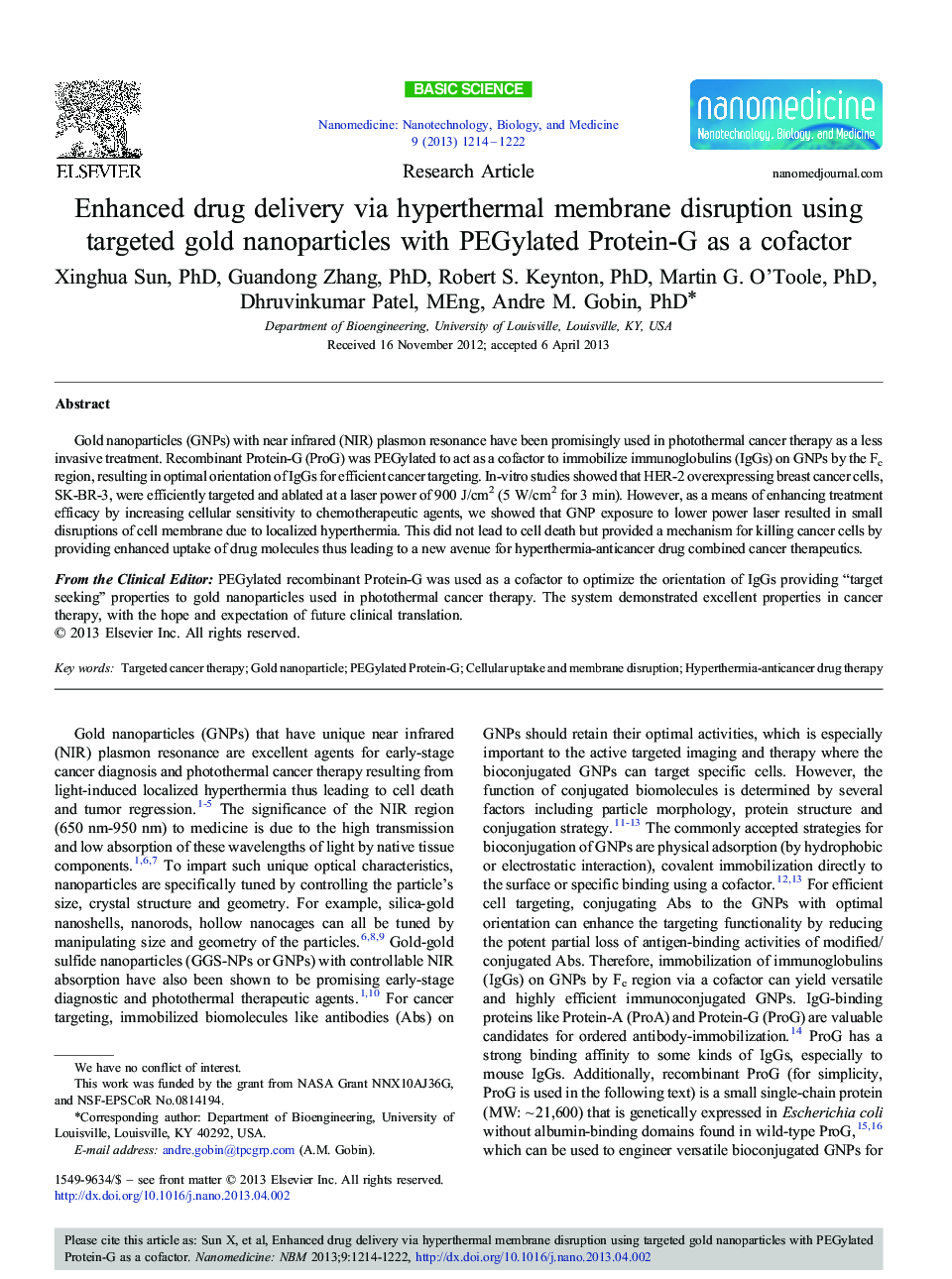| کد مقاله | کد نشریه | سال انتشار | مقاله انگلیسی | نسخه تمام متن |
|---|---|---|---|---|
| 877446 | 911026 | 2013 | 9 صفحه PDF | دانلود رایگان |

Gold nanoparticles (GNPs) with near infrared (NIR) plasmon resonance have been promisingly used in photothermal cancer therapy as a less invasive treatment. Recombinant Protein-G (ProG) was PEGylated to act as a cofactor to immobilize immunoglobulins (IgGs) on GNPs by the Fc region, resulting in optimal orientation of IgGs for efficient cancer targeting. In-vitro studies showed that HER-2 overexpressing breast cancer cells, SK-BR-3, were efficiently targeted and ablated at a laser power of 900 J/cm2 (5 W/cm2 for 3 min). However, as a means of enhancing treatment efficacy by increasing cellular sensitivity to chemotherapeutic agents, we showed that GNP exposure to lower power laser resulted in small disruptions of cell membrane due to localized hyperthermia. This did not lead to cell death but provided a mechanism for killing cancer cells by providing enhanced uptake of drug molecules thus leading to a new avenue for hyperthermia-anticancer drug combined cancer therapeutics.From the Clinical EditorPEGylated recombinant Protein-G was used as a cofactor to optimize the orientation of IgGs providing “target seeking” properties to gold nanoparticles used in photothermal cancer therapy. The system demonstrated excellent properties in cancer therapy, with the hope and expectation of future clinical translation.
Graphical AbstractRecombinant Protein-G (ProG) was PEGylated to immobilize immunoglobulins (IgGs) on GNPs by the Fc region for optimal orientation of IgGs for efficient cancer targeting. The breast cancer cells, SK-BR-3, were efficiently targeted and killed at adequate laser ablation after the immunoconjugated GNP exposure. Lower power laser irradiation that was proved to not kill cells in this work resulted in small disruptions of cell membranes due to the localized hyperthermia. However, such hyperthermia-induced membrane disruption provided a new avenue for enhancing anticancer drug delivery for better cancer ablation.Figure optionsDownload high-quality image (145 K)Download as PowerPoint slide
Journal: Nanomedicine: Nanotechnology, Biology and Medicine - Volume 9, Issue 8, November 2013, Pages 1214–1222